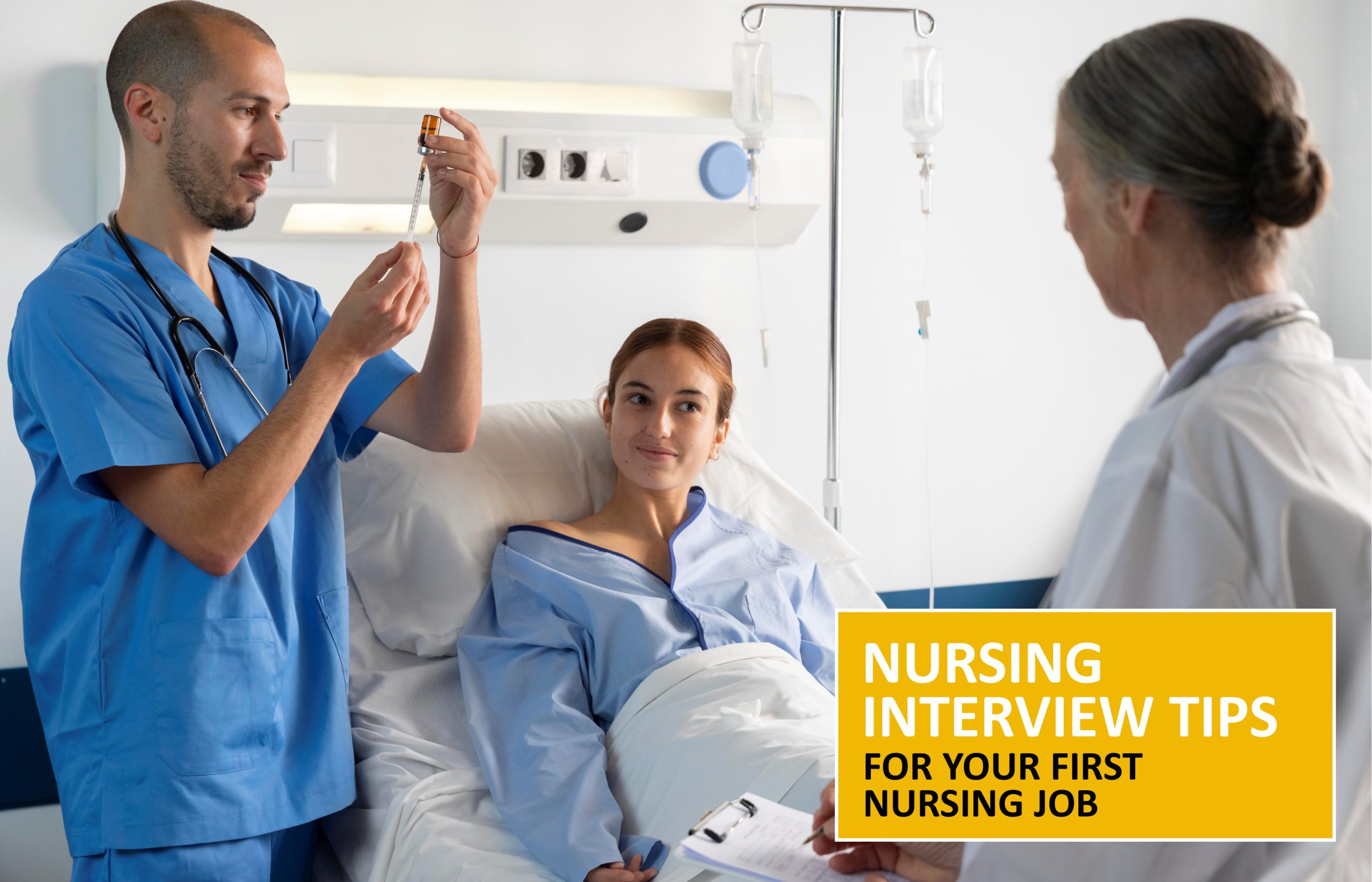
-
Posted on 13th October, 2022
7 Minutes read
Nursing Interview Tips for Your First Nursing Job
You’ve just finished nursing school, and now it’s time to start looking for your very first full-time position as a registered nurse. It’s not easy to put one’s best foot forward during a job hunt, however having a customised résumé, applying for many positions, and tend to put one’s best self forward. First-time preparing for a nursing job interview may be nerve-wracking, but with enough experience and preparation, you can ace them.
Learn the ins and outs of accomplishing your first nursing interview. We’ve put together some nursing job interview tips to help you ace your first healthcare job interview.
1. Get ready for a nursing interview by practising answers to common questions:
Interview questions asked by healthcare organisations may be divided into two categories: clinical and behavioural. Questions on your clinical expertise are one thing, but questions about your performance in areas like teamwork, patient care, time management, information sharing, and your fundamental beliefs are another.
2. Express Your Interest in Working Here:
It’s important to remember that every clinic, laboratory, and the emergency room is different and may provide a somewhat different set of services or benefits. Determine for yourself why you want to operate at this organisation and provide evidence for your qualifications. When responding to a question, provide an experience that demonstrates your knowledge and abilities.
3. Express yourself and show off your talents:
In today’s healthcare setting, the intangible abilities of empathy, friendliness, gratitude, emotional intelligence, and flexibility are crucial. The quality of your treatment will improve as a result of your ability to think critically and solve problems from several perspectives, both of which are essential when talking with patients and co-workers. Managers want to see evidence of your clinical experience, but they also care about whether or not you’ll be a good cultural fit, whether or not you can apply good judgement, and whether or not you comprehend the fundamentals of your field.
4. Be ready with your own set of questions:
The interview is a two-way conversation, and it’s not only the interviewer’s job to ask questions. You’re checking to see whether they’ll be a suitable match for your professional development objectives. While it’s a good idea to have a few questions ready ahead of time, you shouldn’t be afraid to ask follow-up questions depending on what you learn during the interview. If you know who you’ll be interviewing, you may prepare yourself with background information and questions that will be of interest to them. Find out about their history, push them for details about their experiences, and see if you feel a rapport developing.
5. Getting Ready for Your Nursing Interview:
How you present yourself in your interview clothing will leave a long-lasting impression. It shows the interviewer that you take yourself and the job seriously and that you have a professional demeanour. Dress in a way that shows you are comfortable and confident, but still presents a professional image. Go for a fancier look instead of anything too casual, and don’t try to draw too much attention to yourself. Even though scrubs will likely become your daily uniform if you get the job, making a good impression at your initial encounter with the company is essential.
6. Don’t Start Talking Money Yet:
On the first interview, it’s best not to bring up salary or perks. While salary and signing bonuses are certainly deserving discussion, it’s best to wait until after an offer has been made before engaging in any discussions.
7. Reciprocate with a personal message of gratitude:
Write a quick message or send an email to the interviewer thanking them for their time right after the interview is over. It’s a little thing, but it’ll set you apart from every other recent nursing grad with that special touch.
If you can do it, start getting ready for the test one week in advance, since there is going to be a lot of material to go through. It is beneficial to begin preparing for interviews as soon as you begin looking for employment. This will offer you more than enough time to put together a polished interview performance, which will increase your chances of being hired.
FAQ’s

